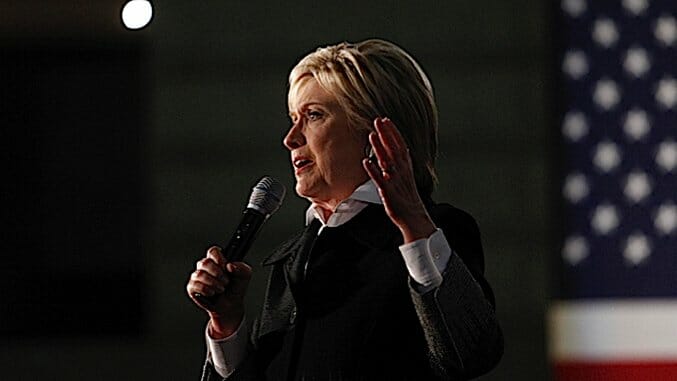If Trump Wins Due to the FBI’s October Surprise, Hillary Clinton Has Nobody to Blame But Herself
Photo courtesy of Getty
As Donald Trump’s allies gloat, Hillary Clinton’s allies are melting down over FBI director James Comey’s recent letter announcing that the agency was pursuing new leads in its criminal investigation into her emails. The Clinton surrogate argument goes like this: Comey’s actions were an intentional attack on Clinton driven by any one of a variety of motivations ranging from partisanship to sexism to implied loyalty to Russia.
Ironically Comey put himself on the same side as Putin.
— Howard Dean (@GovHowardDean) October 29, 2016
Regardless of the chosen motivation, essential to this narrative is the fact that the FBI director’s actions were inconsistent with DOJ policy, and his letter was vague without having reviewed the emails.
However, in all of the sound and fury, a few key points are too often overlooked as this discussion reaches fever pitch.
1. Clinton did this to herself.
Clinton is responsible entirely for the scandal. It was her decision to exclusively use a private email server located in her home while serving as Secretary of State—an unprecedented move.
Regardless of Comey’s motivation, we must remember that Clinton’s judgment put her in this position in the first place.
2. Clinton’s allies in the media and Democratic establishment made her the nominee.
With news breaking about the revelation from Wikileaks that Donna Brazile had given yet another debate question to Clinton before the primary debate in Flint, Michigan—this time from a woman with lead poisoning—it behooves us to remember just how the former Secretary of State secured the nomination in the first place.
Earlier this month, Jordan Chariton of The Young Turks found an email indicating that the CNN contributor and now interim chair of the DNC had fed Clinton a question about the death penalty before the March 13 townhall hosted by Roland Martin and Jake Tapper.
-

-

-

-

-

-

-

-

-

-

-

-

-

-

-

-

-

-

-

-

-

-

-

-

-

-

-

-

-

-

-

-

-

-

-

-

-

-

-

-








































